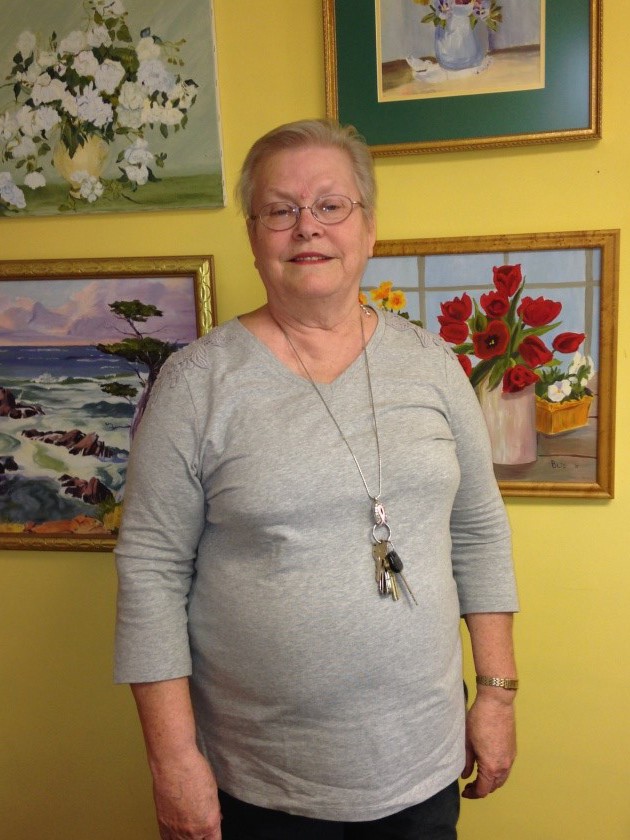BY GRACE McDOWELL
Staff Writer
One in eight women will develop breast cancer in the course of her lifetime. Using those statistics, of the roughly 1,411 female students currently enrolled at McKendree, approximately 176 will develop breast cancer sometime in their lives, roughly 12.5% of the student population.
These alarming statistics reveal why breast cancer awareness is important. October is Breast Cancer Awareness month, and you may have noticed more of the color pink. McKendree athletic teams, NFL teams and even the White House are all sporting their pink.
National Breast Cancer Awareness Month was founded in 1985 with the sole purpose of promoting mammograms for early detection of breast cancer. Women 40 years and over are encouraged to get a yearly mammogram. As college students, it may seem like we have plenty of time to worry about this disease later in life. However, the American Cancer Society recommends ways to detect breast cancer early in younger women.
Beginning in their twenties, women should receive a clinical breast exam as part of a regular health check-up given by a health professional every three years. Women are also encouraged to complete a breast self-exam regularly, in order to feel for abnormal lumps or masses.
According to Cancer.org: “The American Cancer Society believes the use of mammograms, MRI (in women at high risk), clinical breast exams and finding and reporting breast changes early…offers women the best chance to reduce their risk of dying from breast cancer.”
Dr. Betsy Gordon, professor of speech communication, recently went through her own battle with breast cancer. In September of 2012, she noticed a lump in her breast and scheduled a mammogram. Her radiologist told her, “I think you have cancer.” She was stunned. Her needle biopsy indicated the need for a total mastectomy, and, on Sept. 25, 2015, Dr. Gordon was diagnosed with stage two breast cancer. Thankfully, her mastectomy in late October showed no spreading of cancer in the lymph nodes. Her cancer was caught at an early stage, but still needed to be treated aggressively.

Dr. Gordon underwent five months of chemotherapy with treatment occurring every three weeks. Natural hormones triggered her type of breast cancer, and she was required to take a hormone suppressant for up to a year. Due to the massive amounts of germs and illnesses Gordon could be exposed to, the doctor did not want her to continue teaching at McKendree during the time of her chemo treatments.
However, Dr. Gordon had a plan. She wore rubber gloves while teaching, used a face mask whenever students were entering and leaving the classroom and took extra measures to ensure students never had to physically hand a paper in to her. These precautions paid off. Dr. Gordon never once got the sniffles or any type of sickness during her chemo treatments, and in Dec. 2013, she was declared cancer free.
Dr. Gordon was fortunate enough to have a large support network during this time. She received over 200 cards and letters from McKendree staff and students, including alumni. These supporters made meals and sent flowers. The members of her book club helped drive her to doctor’s appointments whenever she did not have a ride. One of her high school friends even offered to fly up to Lebanon and spend time with her.
One particular night, Gordon could not sleep and wanted to hear her mother sing, although she is no longer living. So, she called her sister and asked her to sing instead. Her sister sang a lullaby for fifteen minutes to help put her to bed, and Gordon notes this was the nicest gift she received during her time with cancer.
Dr. Gordon faced different obstacles throughout her battle with breast cancer. “Near the end of chemo, I experienced incredible muscle fatigue that is nothing like being tired. Your nerves are affected, and the message your brain sends that says ‘move’ is impossible to do.”
To help deal with these challenges and inform her friends and family of her experiences throughout treatment, she posted a blog on caringbridge.com. Dr. Gordon notes, “If you are diagnosed, you need to recognize the next year of your life is not your own. Your schedule is put on hold. You have to let go and say, ‘Okay, whatever they tell me to do next, I’ll do.’”
When asked what early detection measures young women should take, Gordon responded, “They need to check their breasts regularly to notice if anything is different. I recommend regular mammograms. Everybody I know personally that has died from breast cancer did not get an early diagnosis.”
From her experience and knowledge of breast cancer, Dr. Gordon sheds some light on common assumptions or misconceptions about the disease. “A lot of people assume that it is hereditary or that we know the causes. The truth is, there are no direct causal links. Anything can trigger it. I was the first person in my family to have it.” Gordon comments that upon being diagnosed with breast cancer, there is no need to say, ‘why me?’ Instead, one should say, ‘what do I do now?’
When wearing pink this October, think about the significance behind the color. Think about the stories of personal battles with this disease, such as Dr. Gordon’s. Think about the importance of early detection and awareness. Think about the overwhelming need for a cure. Think about your pink.